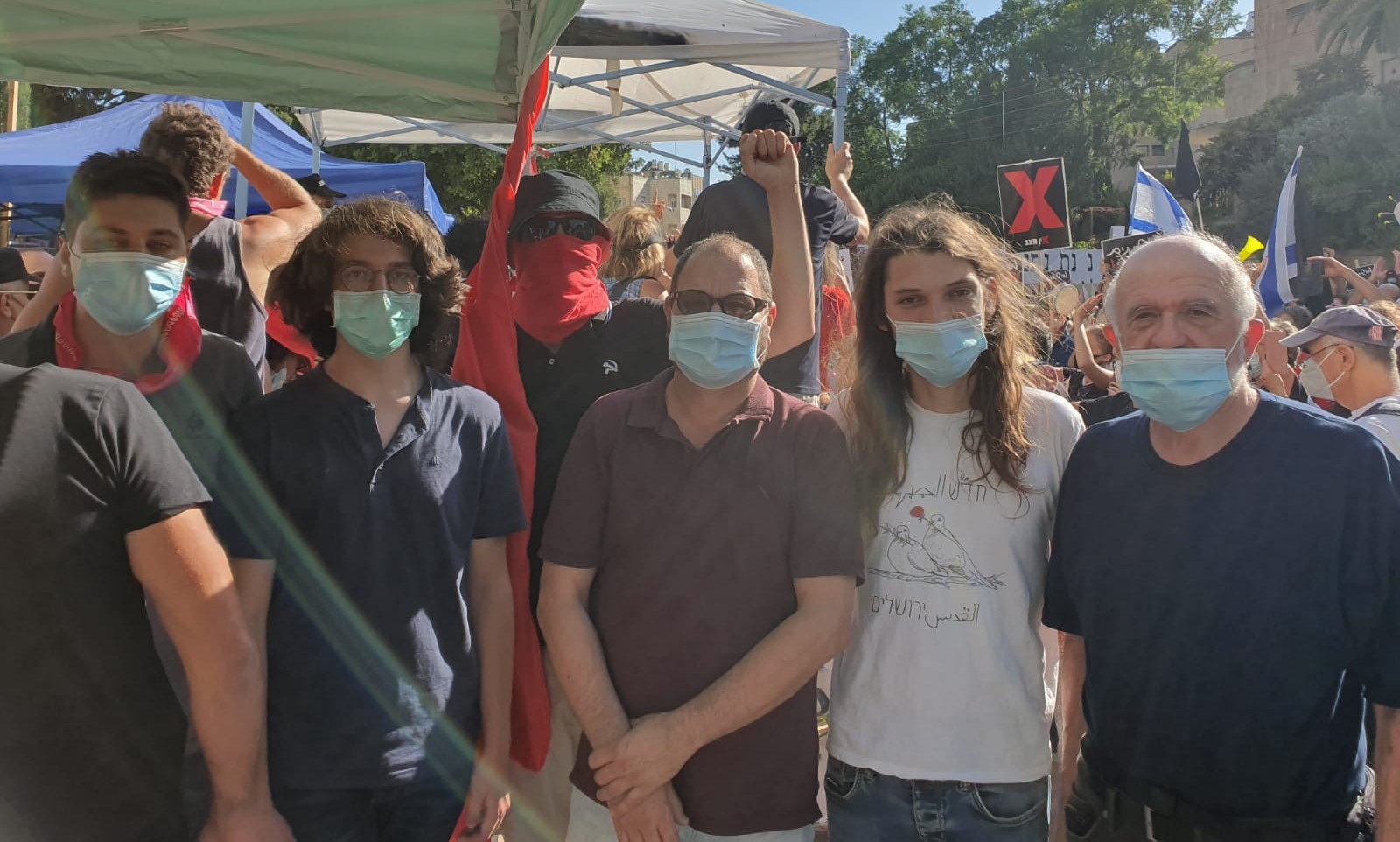A thousand protesters, among them activists from Hadash and the Communist Party of Israel, demonstrated outside Prime Minister Benjamin Netanyahu’s official residence in Jerusalem on Friday, July 17, demanding that he resign over the indictments against him on charges of corruption and breach of trust. It was the third such demonstration during the week at the intersection of Balfour and Gaza Street in the heart of west Jerusalem, where the Prime Minister’s Official Residence is located. The previous protest on Tuesday, July 14, attended by thousands of demonstrator, turned violent and 50 were arrested during clashes with police.

Hadash activists were among the many who attended the Friday, July 17, demonstration outside the Prime Minister’s Official Residence in west Jerusalem demanding the resignation of Benjamin Netanyahu; in the center, Joint List MK Ofer Cassif. (Photo: Zu Haderech)
Last night, Saturday, July 18, the “Black Flag” movement held its regular weekly demonstrations since its founding last year to protest the continued premiership of the indicted far-right prime minister. For the third consecutive week, about 170 “Black Flag”-organized rallies took place across the country, involving thousands of protesters gathering at many of the country’s key overpasses and intersections, from Kiryat Shmona in the north to Eilat in the south. While all this was going on, in Tel Aviv hundreds of protesters gathered in Charles Clore Park near the city’s seafront to rail against the government’s mishandling of the economic aspects of the coronavirus crisis, linking this in large part to Netanyahu’s preoccupation with his legal problems.
Indeed, barring a last-minute COVID-19-related delay, this morning, Sunday, July 19, the country will once again witness a session of court in which its sitting prime minister is on trial for bribery. Just as the pending indictments and eventual trial against Netanyahu – now represented by Attorneys Amit Hadad and Yossi Segev – was a major cause of the 18-month electoral deadlock, the ongoing trial will cast a heavy pall over virtually all major governmental decisions for the foreseeable future.
Today’s court session will resume from where the opening hearing on May 24 concluded, and is meant to be decisive in setting the schedule for when the Jerusalem District Court will begin hearing witnesses. While Netanyahu himself was by necessity physically present in court during the May 24 hearing so that he could personally respond to the indictment, today he is not required to attend the session, which is more about scheduling and the resolution of legal disputes between the prosecution and defense over evidence.
In May, Attorney Micha Fettman argued on Netanyahu’s behalf. However, last week Fettman, like a long list of earlier Netanyahu lawyers, quit the PM’s defense over disputes connected to his remuneration. The controversy over who, how and when attorney fees will be paid blew up after the State Comptroller Committee in charge of vetting gifts to public servants rejected Netanyahu’s request to be allowed to receive a donation of NIS 10 million from one of his tycoon allies, Spencer Partrich, a US citizen, to fund his defense.
Related:


